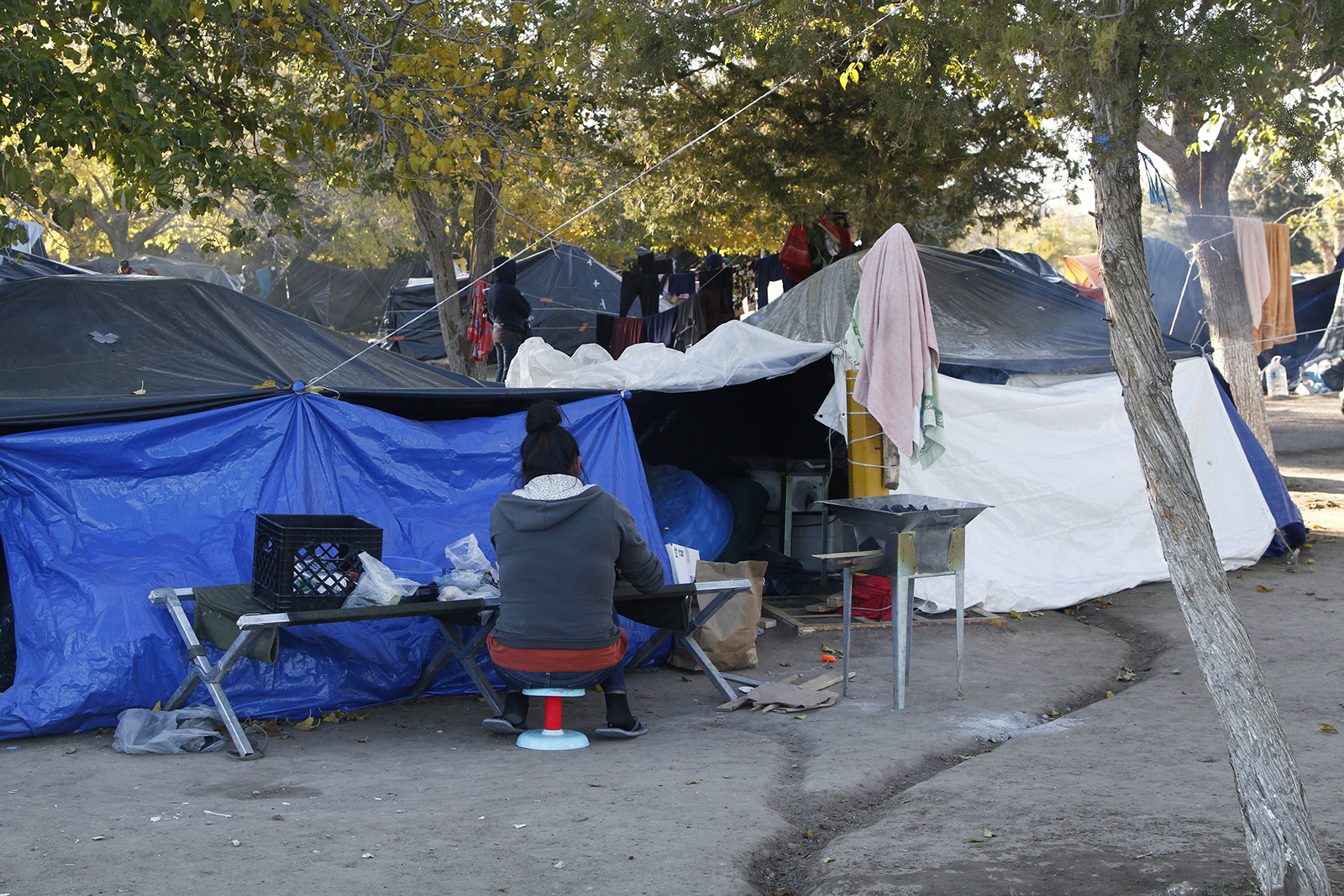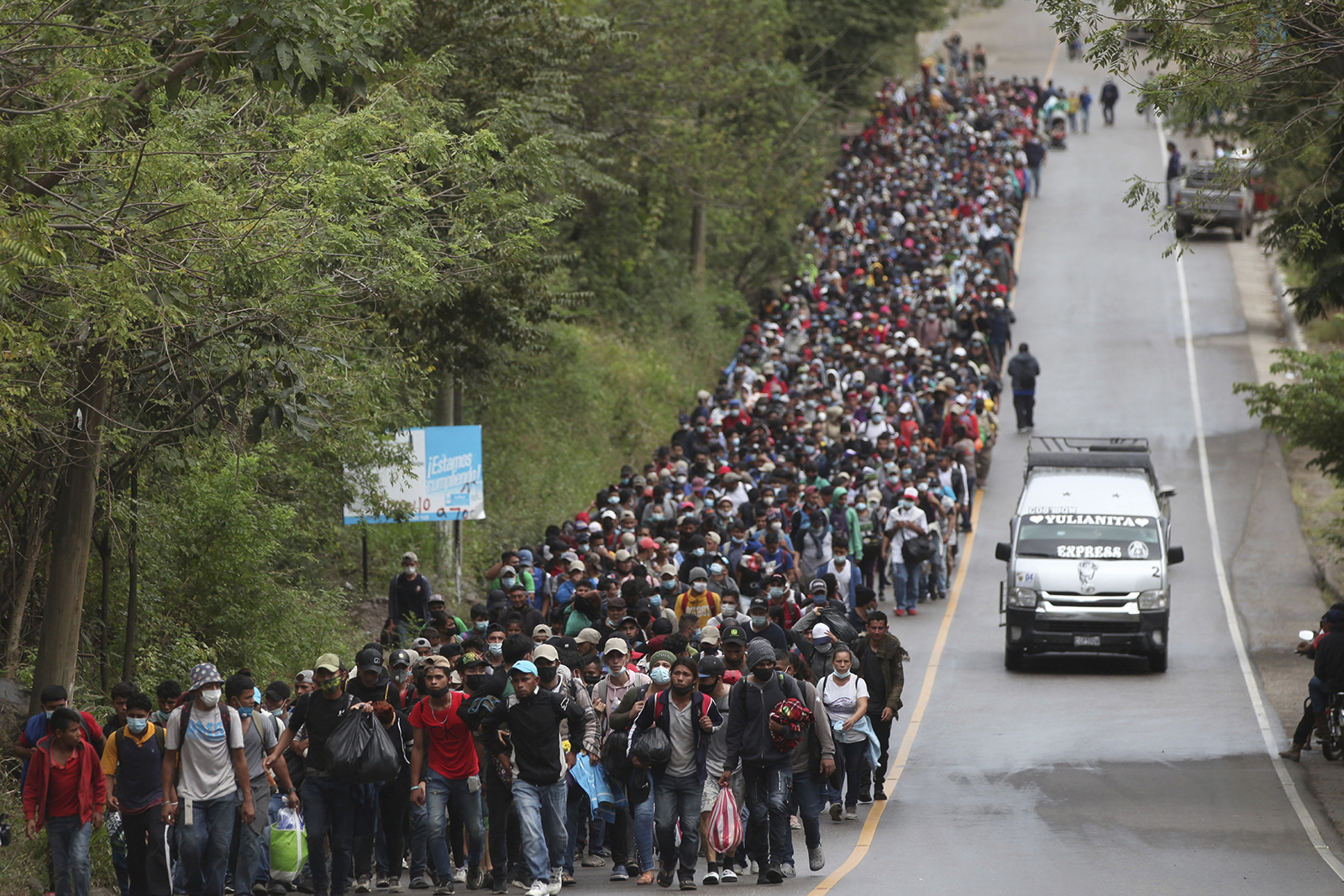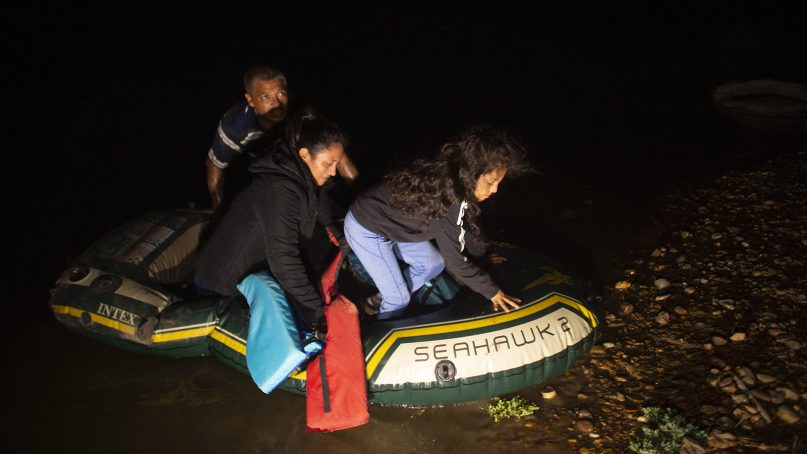(RNS) — With an average 500 unaccompanied children arriving at the United States-Mexico border every day, Krish O’Mara Vignarajah, president and CEO of Lutheran Immigration and Refugee Service, calls the current situation at the border an “emergency.”
The current rate, Vignarajah pointed out, puts the U.S. on track to receive more than 100,000 unaccompanied children this year — higher than the record set in 2019, when 70,000 children arrived seeking to immigrate.
RELATED: Faith-based groups cheer, share hopes for Biden’s family reunification task force
Faith-based agencies like LIRS, which often contract with the federal government to settle migrants, were decimated by the Trump administration’s border policies and then by COVID-19 restrictions. Now some are struggling to cobble together resources to answer the flow of unaccompanied minors and are asking for help to meet the need.
“Obviously, the most important issue is how do we take care of the unaccompanied kids who are coming to our Southern border,” Vignarajah said.
After the Trump administration closed the border during the ongoing pandemic, LIRS faced a hiring freeze, after making cuts over the past four years as the Trump administration slashed the number of immigrants and refugees allowed to enter the country. “So there wasn’t as much of an ability to kind of prepare for any significant increase in children,” said Vignarajah.
The organization is focused now on building its capacity to continue offering “small, family-centric” care, she said. On a webinar Wednesday, LIRS asked for prayer, donations and volunteers to offer foster care and advocates to call on the Biden administration and Congress to take action, among other things.
Volunteers, the agencies say, will be crucial to fill their shortfalls. Last weekend, Catholic Charities of San Antonio, which has also worked for years along the border, sent a request asking for volunteers before the group was sure how they will be used, according to a spokesperson. Catholic Charities already has a presence at the city’s Freeman Coliseum, where 500 unaccompanied migrant minors, ages 13-17, arrived Monday evening (March 29).
Volunteers “may be setting up or serving lunches, or helping make beds for instance, or interacting with the children,” the spokesperson said.
Bill Canny, head of the U.S. Conference of Catholic Bishops Migration and Refugee Services office, said volunteers have also led Catholic Mass for migrant youth and offered pastoral care. “That was very well received,” he said, adding that Lutherans have also offered worship services.
The Biden White House has reached out to faith groups for help through the White House Office of Faith-based and Neighborhood Partnerships. A recent email by the office highlighted an “increased need for safe, state-licensed beds for unaccompanied children” and encouraged religious organizations to explore “a funding opportunity” for “state-licensed residential, group or foster care services.”
Matthew Soerens, U.S. director of church mobilization for World Relief, said in an interview posted on the organization’s website that some of the increase in unaccompanied children at the border is being driven by families seeking asylum who are now slowly being allowed into the U.S. after waiting in informal camps or church-based shelters for a year or more under the Trump administration’s “remain in Mexico” policy. After being tested for COVID-19 and having their claims processed, they are sent to join relatives in the U.S. to await court dates.

In this Dec. 3, 2019, photo, a woman from Michoacan, in Southern Mexico, prepares a dinner of eggs and beef using a wood-fuel grill outside her tent in a 250-person encampment in a public park in Juarez, Mexico, a quarter of a mile away from a border crossing to El Paso, Texas. Residents of the camp said that they are fleeing violence and gang impunity in Southern Mexico. (AP Photo/Cedar Attanasio)
Other analysts also point to a predictable seasonal increase of migrants, heightened by another factor: The new administration has largely stopped turning away unaccompanied minors under a policy known as Title 42 that closed the border due to COVID-19. The policy appears to have largely delayed entry to the U.S., rather than stopped it, and Biden’s shift in approach has led to an increase in crossings.
Despite being understaffed, several faith groups framed the government’s shift in approach to unaccompanied minors as a positive step, arguing that it’s safer for children to be admitted.
“The Biden administration has recognized the humanitarian imperative to allow children into the country rather than sending them back to the same dangers they fled,” said Vignarajah of LIRS.
Once admitted, Vignarajah explained, children must be transferred out of U.S. Customs and Border Protection facilities, which weren’t built with them in mind, within 72 hours. The U.S. Department of Health and Human Services’ Office of Refugee Resettlement cares for the children through its providers until they can be reunited with a U.S. sponsor — oftentimes, a parent or family member.
“No one disagrees with the fact that CBP settings are no place for a child,” Vignarajah said. “It breaks my heart to think of children of a tender age having to spend several nights in jail-like settings, confused and scared after an already incredibly dangerous journey.”
Connecting children with their sponsors can take weeks or months, she added, “because it’s critical to vet the sponsors and ensure the home will be a safe environment for children. No one wants to see children released too quickly and fall victim to trafficking.”
HHS’ resettlement office has also seen cuts over the past few years, further slowing the intake of migrant children.

Honduran migrants hoping to reach the U.S. border walk along a highway in Chiquimula, Guatemala, on Jan. 16, 2021. Guatemalan authorities estimated that as many as 9,000 Honduran migrants have crossed into Guatemala as part of an effort to form a new caravan to reach the U.S. border. (AP Photo/Sandra Sebastian)
At Bethany Christian Services, one of the local partners LIRS works with to resettle children, Dona Abbott said that foster care currently makes up about 15% of the Office of Refugee Resettlement’s permanent bed capacity for unaccompanied child migrants.
“We do our best, within 30 days or sooner, to get the children to the family member that they were coming here to join,” said Abbott, Bethany’s senior adviser for global, refugee and immigrant services. “Well over 95% are coming to join another family member.”
Bethany has also been facing staffing difficulties. Another Trump policy capped staff at unaccompanied children programs at 50% of their normal staffing capacity because so few children were being admitted into the country.
“Because children were unable to be kept safe in Bethany’s programs, we lost staff that we weren’t allowed to replace, and foster parents looked elsewhere to help vulnerable children in need. Bethany is working hard to hire qualified staff and recruiting new foster families,” read a statement from the group. “Not only are we trying to expand our services to meet the great need, we are rebuilding programs.”
Even so, Bethany CEO Chris Palusky said his group has reached out to church partners and received at least 1,000 requests to become foster parents. Not all applicants will make it through the process — “Do we need more? Oh, sure,” said Abbott — but Palusky expressed optimism about the work ahead.
“We see it as just such a great opportunity for followers of Jesus to be the hands and feet of Christ,” he said. “It’s just so tangible.”





